Experts and Partner Institutes
 River Basin Dynamics and Hydrology Research Group
River Basin Dynamics and Hydrology Research Group
RBDHRG is one of the largest centres of watershed-based science in the UK and comprises six academic staff whose research has been identified in the last UK Research Assessment Exercise as world leading and internationally excellent. The RBDHRG aims to advance understanding of the functioning of the catchment system, its processes, and drivers of change and patterns of response, and has particular strengths in : 1. Monitoring and Modelling Catchment Processes: developing earth observation tools for monitoring morphodynamics and flow resistance; multi-scale characterization of morphology; dynamics of mixed bedrock-alluvial rivers; reduced complexity models of hydraulics and landscape evolution. 2. River System and Catchment Response to Environmental Change: application of geochronology to fluvial deposits; quantifying and interpreting fluvial sedimentary archives; assessing the drivers and controls of river and catchment response; flood risk assessment; and impacts of metal mining on the fluvial system. 3. Catchment and Coastal Water Quality: modelling fluxes of indicator bacteria and pathogens in bathing and drinking water and coastal fisheries; linking catchment and coastal fluxes and circulations of pathogens; quantifying health effects due to contact with 'environmental' waters.
 The Institute of Geography, Almaty is one the most experienced academic research centres in Central Asia, consists of 6 research stations and 8 specialised departments and laboratories in the fields of glaciology, recreational geography, landscape study and problems of nature management, geomorphology and geo-information mapping, water resources, sufficiency of water supply of nature-economic systems, geographic information systems, and natural hazards. The Institute focuses on fundamental and applied research of 'nature-society' interactions by studying geography and geoecology. This includes research topics such as estimation and prognosis surface water resources, climate change and economic activities, and the study of natural disasters. The Institute has carried out a wide spectrum of works on government programs of fundamental research and directed works of an applied character.
The Institute of Geography, Almaty is one the most experienced academic research centres in Central Asia, consists of 6 research stations and 8 specialised departments and laboratories in the fields of glaciology, recreational geography, landscape study and problems of nature management, geomorphology and geo-information mapping, water resources, sufficiency of water supply of nature-economic systems, geographic information systems, and natural hazards. The Institute focuses on fundamental and applied research of 'nature-society' interactions by studying geography and geoecology. This includes research topics such as estimation and prognosis surface water resources, climate change and economic activities, and the study of natural disasters. The Institute has carried out a wide spectrum of works on government programs of fundamental research and directed works of an applied character.
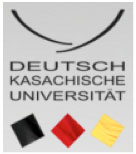 The German-Kazakh University will be the lead partner on international and national water law and policies, including the anticipated effects of climate change and its implementation to better protect communities from contaminated water and environmental degradation. GKU's experience in natural resource management will also significantly strengthen the project as well will their extensive international (industry and government) network, which has been developed by organising recent major large conferences on water resources in Kazakhstan and more widely in Central Asia. GKU students are well-suited to play an active role as the generation of water resources experts in Kazakhstan. GKU will logistically support fieldwork, organisation of meetings and conferences in Kazakhstan as well as providing assistance in data analysis, dissemination of results in international policies on water management and publications.
The German-Kazakh University will be the lead partner on international and national water law and policies, including the anticipated effects of climate change and its implementation to better protect communities from contaminated water and environmental degradation. GKU's experience in natural resource management will also significantly strengthen the project as well will their extensive international (industry and government) network, which has been developed by organising recent major large conferences on water resources in Kazakhstan and more widely in Central Asia. GKU students are well-suited to play an active role as the generation of water resources experts in Kazakhstan. GKU will logistically support fieldwork, organisation of meetings and conferences in Kazakhstan as well as providing assistance in data analysis, dissemination of results in international policies on water management and publications.
 The Kazakh National Technical University (KNTU) is the Kazakh authority in groundwater processes and water resources, engineering, and mining and pollution in Kazakhstan. KNTU's expertise is leading on ground- and surface-waters interactions, and evaluation of the likely effects of climate change on water availability for industry, irrigation, and local populations. Recent work of the KNTU has focused on measuring contaminants in the various river basins and experimenting with advanced cleaning techniques. The Department of Hydrology and Engineering Geology at KNTU specialises in mathematical models to assess the impacts of a range of climate change and economic development scenarios on groundwater resources in southern Kazakhstan.
The Kazakh National Technical University (KNTU) is the Kazakh authority in groundwater processes and water resources, engineering, and mining and pollution in Kazakhstan. KNTU's expertise is leading on ground- and surface-waters interactions, and evaluation of the likely effects of climate change on water availability for industry, irrigation, and local populations. Recent work of the KNTU has focused on measuring contaminants in the various river basins and experimenting with advanced cleaning techniques. The Department of Hydrology and Engineering Geology at KNTU specialises in mathematical models to assess the impacts of a range of climate change and economic development scenarios on groundwater resources in southern Kazakhstan.
 The Institute of Forestry and Agroforestry (IoFaF) specialises in assessing the use of an ecosystem services approach to mitigating the effects of climate change on forest dynamics headwater catchments in the Tian Shan Mountains, as well as for arid land agriculture and forest management in piedmont regions. IoFaF has extensive knowledge on changing water budgets resulting from both climate and land-use change, and extreme weather events influence regional water stress and the occurrence of natural hazards. IoFaF has recently set up an initiative to collect environmental data from tree rings, which will with additional Newton-fund support provide new information on climate change impacts, including changes in river flow and the incidence of landslips in high-mountain and piedmont catchments. Within the scope of the Newton-al Farabi the IoFaF would also like to support environmental modelling of vegetation and combine this information with water and soil analysis, data on evaporation and soil moisture, groundwater replenishment and other interactions between plants and soils.
The Institute of Forestry and Agroforestry (IoFaF) specialises in assessing the use of an ecosystem services approach to mitigating the effects of climate change on forest dynamics headwater catchments in the Tian Shan Mountains, as well as for arid land agriculture and forest management in piedmont regions. IoFaF has extensive knowledge on changing water budgets resulting from both climate and land-use change, and extreme weather events influence regional water stress and the occurrence of natural hazards. IoFaF has recently set up an initiative to collect environmental data from tree rings, which will with additional Newton-fund support provide new information on climate change impacts, including changes in river flow and the incidence of landslips in high-mountain and piedmont catchments. Within the scope of the Newton-al Farabi the IoFaF would also like to support environmental modelling of vegetation and combine this information with water and soil analysis, data on evaporation and soil moisture, groundwater replenishment and other interactions between plants and soils.
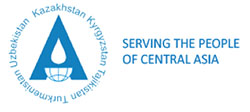 The International Fund for Saving the Aral Sea (IFAS) has more than 20 years of experience with working on ecological and socio-economical problems related to water stress in the Aral Sea region. In the proposed catchment-approach, IFAS participation represents the downstream end of Kazakh river systems and of its users. Expertise on these arid environments and associated water stress and pollution, are all supported by their dedicated hydrological research station on the Lower Syr Darya, and is complementary to other more upstream oriented expertise. Furthermore, IFAS has experience with assessing international water problems and will be of great importance in implementing newly collected data in update laws and policies for the larger Central Asian region.
The International Fund for Saving the Aral Sea (IFAS) has more than 20 years of experience with working on ecological and socio-economical problems related to water stress in the Aral Sea region. In the proposed catchment-approach, IFAS participation represents the downstream end of Kazakh river systems and of its users. Expertise on these arid environments and associated water stress and pollution, are all supported by their dedicated hydrological research station on the Lower Syr Darya, and is complementary to other more upstream oriented expertise. Furthermore, IFAS has experience with assessing international water problems and will be of great importance in implementing newly collected data in update laws and policies for the larger Central Asian region.
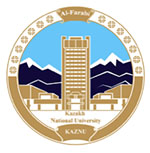 The KNU Al-Farabi University in Almaty has recently joined our Newton-al Farabi project and will provide expertise on climate change in Central Asia, glaciology, sediment transport and floods, and international affairs resolving around climate change adaptation and joint water diplomacy.
The KNU Al-Farabi University in Almaty has recently joined our Newton-al Farabi project and will provide expertise on climate change in Central Asia, glaciology, sediment transport and floods, and international affairs resolving around climate change adaptation and joint water diplomacy.

 Prof. Mark Macklin, Fluvial Geomorphology, Principal Investigator.
Prof. Mark Macklin, Fluvial Geomorphology, Principal Investigator.  Rhodri Bevan, Geochemistry and GIS, MPhil student.
Rhodri Bevan, Geochemistry and GIS, MPhil student. 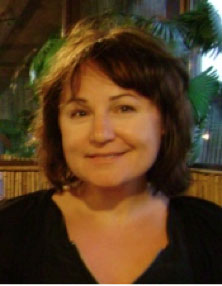 Dr. Irina Panyushkina, Dendrochronology Consultant.
Dr. Irina Panyushkina, Dendrochronology Consultant.  Dr. Willem Toonen, Flood risk, Project administrator.
Dr. Willem Toonen, Flood risk, Project administrator.  Maxim Dolbeshkin, Hydrology modelling 2015 Aberystwyth Trainee.
Maxim Dolbeshkin, Hydrology modelling 2015 Aberystwyth Trainee. 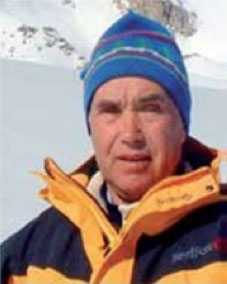 Prof. Viktor Blagovechshenskiy, Natural Hazards, Head of Dept.
Prof. Viktor Blagovechshenskiy, Natural Hazards, Head of Dept.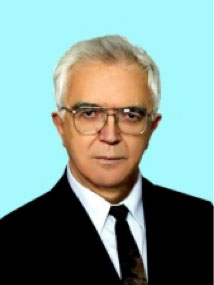 Prof. Igor Severskiy, Glaciology, Former Director.
Prof. Igor Severskiy, Glaciology, Former Director. 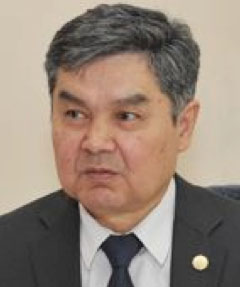 Prof. Akhmetal Medeu, Remote Sensing and GIS, Director.
Prof. Akhmetal Medeu, Remote Sensing and GIS, Director.  Prof. Igor Malkovskiy, Glaciology, Head of Dept.
Prof. Igor Malkovskiy, Glaciology, Head of Dept.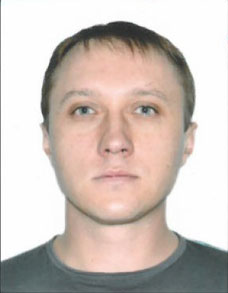 Yevgeniy Nikolayev, GIS & Remote sensing, 2015 Aberystwyth Trainee.
Yevgeniy Nikolayev, GIS & Remote sensing, 2015 Aberystwyth Trainee. 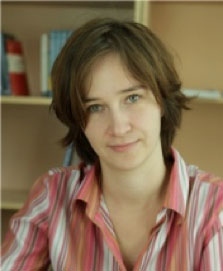 Dr. Barbara Janusz-Pawletta, Water resources management, Head of Dept.
Dr. Barbara Janusz-Pawletta, Water resources management, Head of Dept. 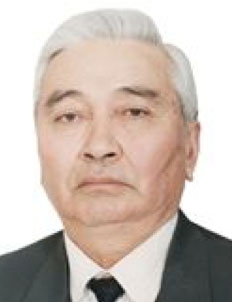 Prof. Menlibai Myrzakhmetov, Mining and waste pollution, Head of Dept.
Prof. Menlibai Myrzakhmetov, Mining and waste pollution, Head of Dept.  Nurzhan Mukhametkaliyev, Earth Resources and pollution, 2015 Aberystwyth Trainee.
Nurzhan Mukhametkaliyev, Earth Resources and pollution, 2015 Aberystwyth Trainee. 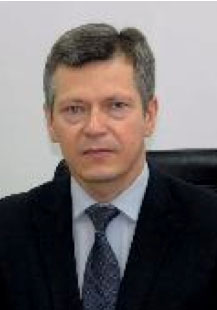 Prof. Vitaly Salnikov, Climate change, Dean.
Prof. Vitaly Salnikov, Climate change, Dean.  Zhanara Zhanabayeva, Sediment transport and rivers, Lecturer.
Zhanara Zhanabayeva, Sediment transport and rivers, Lecturer.